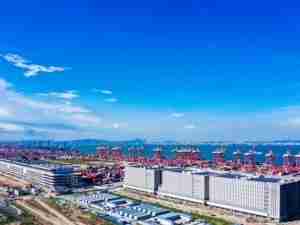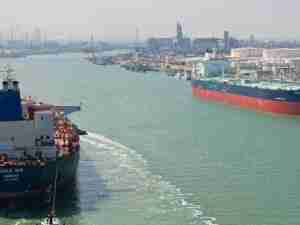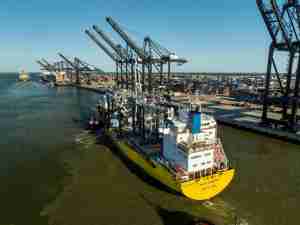Authorities dismissed any notion that the port would be handed to Chinese control because of its substantial investment. But analysts suspect China would push for a major say over the port to back its bid to expand its influence in the Indian Ocean.
Pakistan, struggling to revive its debt-hit economy, is keen to become a conduit for trade to landlocked Afghanistan and Central Asia. It has three major ports -- Gwadar in Baluchistan and two at Karachi, 450 km (280 miles) to the east.
As initially envisaged, former president Pervez Musharraf's government gave management and operational control of the deep-sea port to Singapore's PSA International Ltd in February 2007 for 40 years.
But the chief minister of the government of Baluchistan, the southwestern province where Gawdar port is located, said he would seek its cancellation by the Supreme Court this month.
"After consultation with legal experts and law ministry, we have decided that we will go to the court this month and seek its cancellation," Nawab Mohammad Aslam Raisani said in an interview in Islamabad. "It's a one-sided agreement. It's our land. It's our port and we should run it."
He said PSA International Ltd had neither brought in trade nor expanded the port. But there were no plans to hand the port to China. "Why can we not operate it ourselves? We have trained people."
PSA, which runs ports around the world and is owned by state wealth fund Temasek Holdings, declined comment.
Low Cargo Levels, No Investment
Gwadar port handled about $700 million in cargo in 2009, less than half of its cargo capacity, a port and shipping ministry official said. He said the company had made no investment despite an agreement to invest $525 million over five years.
Pakistan gets only 9 percent of the port's total revenue.
Slow business also caused suspension of planned $1.5 billion investment by a Chinese company, Tianjin Zhongbei Harbour Engineering, he said.
In September, Pakistan's naval chief asked the government to review the contract for the same reasons.
Gwadar, 70 km (45 miles) east of the Iranian border and on the doorstep of Gulf shipping lanes, was conceived over a decade ago with hopes it would handle transhipment traffic for the Gulf.
A regional maritime industry source said a failure to develop infrastructure by the port and check security discouraged trade.
Under the agreement, the Baluchistan government, which has been battling a decades-old low-level revolt by nationalists for provincial autonomy, was to develop a free-zone for warehouses and export processing zone and establish road and rail links.
The central government, led by Prime Minister Yusuf Raza Gilani, appears unwilling to defend the contract with PSA.
"I don't think we will. We can only prove that we followed the due process at the time of awarding the contract," a senior government official said.
Middle East and South Asia director of the private intelligence company STRATFOR, Kamran Bokhari, said Beijing was likely seeking to acquire influence over the port.
"The Chinese do want to have considerable access to it," he said. "The port serves as a key location facilitating Beijing's attempts to expand its influence further west," he said.
This will upset India, which has already expressed concern over China's influence in the region. (Reuters)










